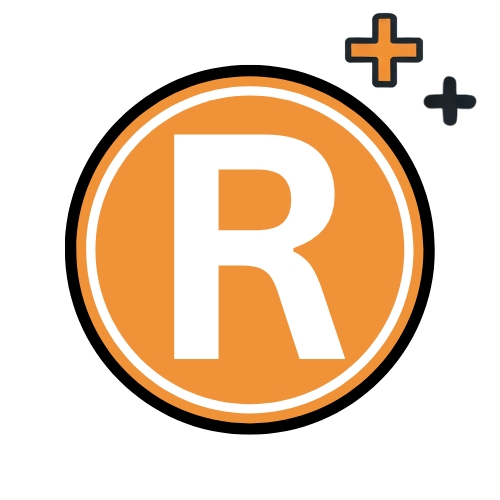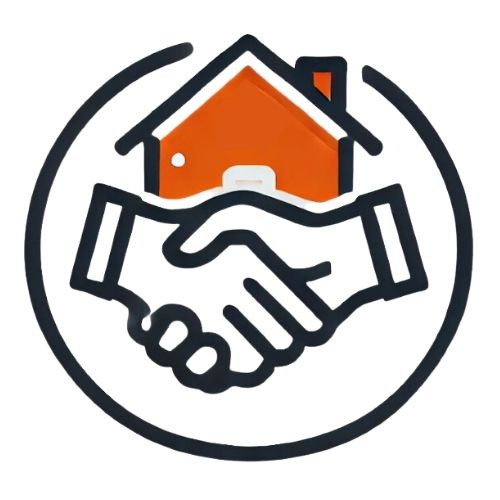
The process of buying a house can feel both exciting and overwhelming, particularly without a clear starting point. From securing your finances to signing the final documents, every step requires careful thought and preparation. If you’re a first-time buyer or moving into a new home, knowing what to expect can help you navigate the process with ease. So, what are the key steps you need to follow to secure your perfect home?
Key Takeaways
- Assess Your Financial Situation: Before starting your home search, thoroughly evaluate your finances. Establish a realistic budget, consider your long-term needs, and identify a suitable neighbourhood. It is also essential to account for initial costs, ongoing expenses, and the type of property that aligns with your lifestyle.
- Understand Additional Costs: Beyond the property price, be aware of one-time expenses such as transfer duties, bond registration fees, and ongoing costs like rates and insurance. If purchasing in a sectional title complex, request financial statements and inquire about potential special levies to avoid unexpected charges.
- Conduct Thorough Inspections: When viewing properties, look beyond aesthetics to identify any structural issues or safety concerns. Engaging a professional home inspector can provide valuable insights into potential hazards, ensuring you make a well-informed decision before finalising your purchase offer.
About Arcadia Finance
Arcadia Finance makes loan applications easy. Access 19 reputable lenders, all compliant with South Africa’s National Credit Regulator, without any application fees. Find the perfect loan tailored to your needs today.
5 Steps to Buying a House
Acquiring your first property is an exciting venture, but it can also induce some apprehension. To keep your enthusiasm intact and alleviate worries about financial obligations, consider our home-buying tips. Purchasing real estate represents a significant decision and a considerable investment. For first-time buyers, the entire process may seem daunting; however, by following some fundamental home-buying strategies, the experience can be manageable and straightforward.

Assess Your Financial Capacity
Before you search for the perfect home, evaluating your financial situation and determining what you can afford is essential. Keep the following factors in mind as you navigate the property market:
- Your Budget: Be pragmatic about your financial limits and establish a realistic budget for your property purchase.
- Your Requirements: Recognise that property is a significant long-term investment. Reflect on both your current needs and potential future requirements.
- Your Lifestyle: Identify a neighbourhood that aligns with your preferred way of living. Consider whether the area is deteriorating or undergoing extensive development, and assess the noise levels associated with the property.
- Safety: Investigate the security of the property. Is crime in the vicinity well managed?
- Proximity: Evaluate how close the property is to essential services such as healthcare, schools, your workplace, and retail outlets.
- Space Requirements: Determine the minimum specifications you need in terms of bedrooms, bathrooms, parking spaces, and garden area. Consider the costs associated with accommodating your pets and ensure your communication needs are adequately met. Additionally, account for all initial expenses related to managing your household.
- Type of Property: Decide whether you prefer a standalone house, a flat, or a unit within a complex. If you opt for a complex, investigate its management and maintenance standards. Be aware of the levies involved and any restrictions that may apply.
- Maintenance Responsibilities: Consider whether you have the time available to care for the garden and pool.
- Renovation and Redecoration Costs: Assess the amount of work required to improve or update the property. Determine whether these renovations can be completed without incurring excessive expenses.
If you’re debating whether to build or buy, understanding construction expenses is a key step. Learn more about the Cost to Build a House in South Africa and decide which path suits your budget and goals.

Consider the Additional Expenses
Purchasing a property involves several one-time extra costs, including the deposit, transfer duties, conveyancing fees, and deeds registration fees. Additionally, there are ongoing household expenses. Beyond standard levies or rates and taxes, you may need to manage costs for pool maintenance, garden services, or security. It’s also essential to account for building insurance.
If buying in a sectional title complex, you have the right to request financial statements to ensure the property is well-managed and in good financial standing. Additionally, inquire about any upcoming special levies, which are extra charges on top of regular levies used to fund significant investments like security upgrades or major maintenance. Being aware of potential special levies will affect your short-term costs.
Beyond the down payment and mortgage, don’t forget about additional costs such as transfer fees when buying a home. These fees, which cover the legal process of transferring the property into your name, can be substantial and should be factored into your budget early on.

Understand What You are Purchasing
During your search for the ideal home, you will likely view numerous properties. It is essential to look beyond the current furnishings and decor. Pay close attention to the condition of the walls and plaster for any indications of dampness or visible structural cracks. Inspect whether the roof exhibits any signs of sagging. Additionally, evaluate the neighbourhood in terms of its location and safety.
Consider employing a professional home inspection service to assess the property thoroughly before making an offer. Home inspectors are trained to identify potential hazards, which may include:
- Structural damage
- Water ingress and dampness
- Defective electrical, plumbing, and gas systems
- Decayed timber
- Hazardous substances (such as asbestos, lead-based paint, and toxic moulds)
Many buyers plan to invest in renovations or improvements to make their new house feel more like home. If you’re looking to finance home improvements, start here!

Follow Through on Your Offer
Making a well-informed choice regarding the property you are considering is crucial. Our complimentary Home Services property guide enables you to assess the estimated value of any property, helping you confirm that you are not overpaying. In addition, you can access information on local area trends, sales patterns, crime statistics, and much more.
Once you identify a property that you wish to call your own, it is essential to proceed with making a purchase offer. This is a significant decision that should not be approached lightly, as withdrawing an offer can incur substantial financial penalties. The exact amount of these penalties is determined by the terms outlined in your signed contract.

Ensure Your Paperwork is Prepared
After your offer to purchase has been formally approved, the next step in the home-buying process is to complete your home loan application. At this stage, it is highly recommended to use a comprehensive document checklist to ensure that you have identified all the necessary paperwork and information required for submitting your application, whether you choose to do this online or visit your nearest branch. It is essential to be meticulous in gathering these documents, as this will facilitate a smoother application process. Moreover, it is crucial that you submit your application promptly, as any delays could affect your financing timeline and ultimately your ability to secure your new home.
Some buyers may prefer building their dream home from scratch. If that’s your plan, understanding what to consider when purchasing a plot of land is crucial.

Enhance Your Credit Score to its Optimal Level
If you have not saved a substantial amount of money to buy your new home outright, you will likely need a loan to cover at least part, if not the entire, purchase price. Your credit score will play a significant role in determining whether you are approved for a home loan and, if approved, the amount you qualify for.
For this reason, maintaining a good credit score is essential. Having multiple credit accounts, such as store cards, credit cards, and loans, where you consistently make timely payments without defaults, can positively impact your credit score. If you are unsure of your current standing, checking your credit score is advisable. You are entitled to one free credit report each year. Once you identify areas for improvement, you can take steps to enhance your score before submitting your home loan application.
Understanding What is Pre-Approval When it Comes to a Mortgage? is an essential early step that makes the rest of the buying process far less stressful.
Understand the Hidden Expenses
In addition to the initial deposit, purchasing a property involves various additional expenses that you should be aware of, including:
- Costs associated with bond registration
- Fees for property transfer
- Levies and special levies, particularly if you are buying a sectional title property
It is also important to consider the potential expenses for rates and taxes in addition to your monthly bond repayment. Evaluating these costs will help you determine your affordability range.
One of the first steps in the home-buying journey is saving for your deposit. It’s not just a financial hurdle; it’s a key component lenders look at before granting a home loan. If you’re unsure how it works, read more about What is a Deposit on a Home Loan? for a full breakdown.

What Additional Information Is Essential When Purchasing A House?
Acquiring a bond means that the bank has the right to repossess your property if you do not meet your repayment obligations, and this remains true until the last payment is made. If you face an unexpected event, such as a serious illness, disability, or even the death of you or your partner, that makes it difficult to continue repaying the home loan, your family could risk losing their home.
To mitigate this risk, it’s important to review the details of your life insurance policy. Ensure it provides coverage for disability, severe illness, and income protection. If an insurable event occurs, these benefits can help cover the remaining balance on your bond.
When you secure a bond, the lending institution will require you to obtain short-term insurance to protect your home from accidental damage or loss due to events like fire, theft, or natural disasters such as floods. This insurance typically covers only the physical structure of the house, the portion that the bank has financed and therefore has a financial interest in, not your personal belongings.
While it is not mandatory to insure your household contents, doing so is highly advisable. When you consider the total cost of replacing your family’s possessions, you may be surprised at how quickly the expenses add up. In the unfortunate event of a fire, flood, or burglary, replacing these items without financial support would be extremely difficult.
Conclusion
Buying a home is a major financial commitment that requires careful planning and consideration. By evaluating your financial situation, understanding the various costs involved, and conducting thorough inspections, you can navigate the home-buying process with confidence. Working with professionals and being proactive about your finances will enable you to make informed decisions, ultimately leading to a successful purchase that meets your needs and secures your investment for the future. Taking these steps will not only alleviate the stress of buying a house but also create a rewarding experience as you embark on this important journey.
Frequently Asked Questions
The first step in buying a house is to assess your financial situation. This includes evaluating your budget, determining how much you can afford for a deposit, and understanding your ongoing expenses. It is also advisable to check your credit score, as this will affect your ability to secure a mortgage.
Yes, there are several hidden costs to consider when buying a house. These can include transfer duties, bond registration fees, legal fees, and home inspection costs. Additionally, ongoing expenses such as property rates, taxes, insurance, and maintenance should also be factored into your budget.
Although hiring a real estate agent is not required, it can be beneficial, especially for first-time buyers. An experienced agent can guide you through the process, help you identify suitable properties, negotiate offers, and assist with the paperwork, ultimately leading to a smoother experience. You can explore property listings in Property24.
During a home inspection, you should look for any signs of structural damage, issues with the roof, plumbing and electrical systems, dampness, or pest infestations. It is advisable to hire a professional inspector who can identify potential hazards and provide you with a detailed report on the property’s condition.
The duration of the home-buying process can vary widely due to factors such as market conditions, financing approvals, and negotiations. On average, the entire process may take anywhere from a few weeks to several months, depending on how quickly you identify a property and complete the required paperwork.
Fast, uncomplicated, and trustworthy loan comparisons
At Arcadia Finance, you can compare loan offers from multiple lenders with no obligation and free of charge. Get a clear overview of your options and choose the best deal for you.
Fill out our form today to easily compare interest rates from 19 banks and find the right loan for you.



